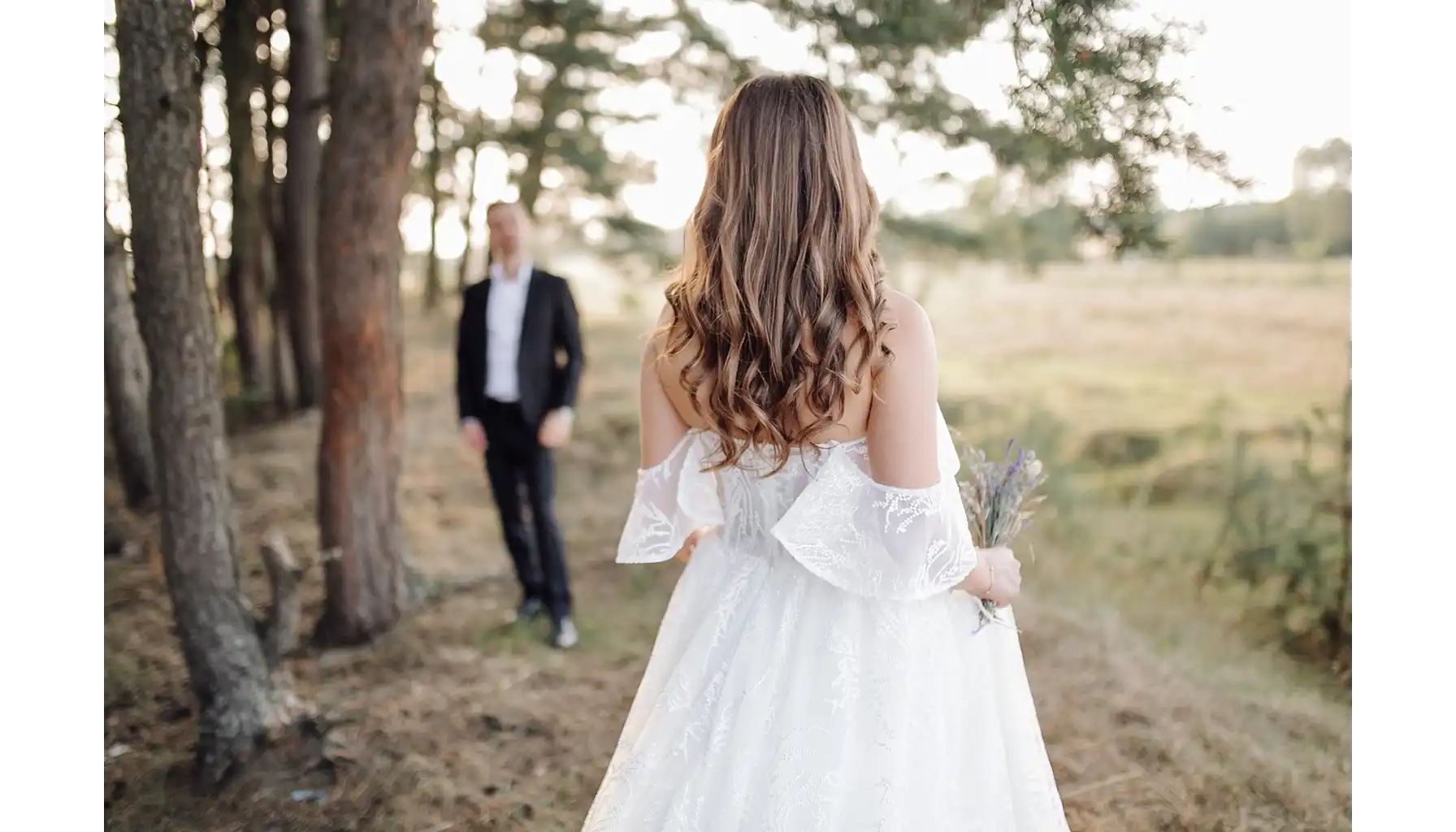Contents:
For some, marriage feels like safety — a steady kind of warmth, a reliable presence, and the comfort of knowing there’s someone walking through life right beside you. But for others, the mere thought of a wedding or a long-term union causes inner anxiety, sometimes turning into real panic.
This condition is called gamophobia, or fear of marriage and serious attachment. It can literally throw off balance: interfere with building close relationships, disrupt plans for the future, and shake emotional balance.
And here the question naturally arises: what is gamophobia? The answer is not in a dry definition, but in understanding what mechanisms are hidden behind this fear. It is this knowledge that becomes the first step to stop living in the shadow of anxiety and begin to move towards overcoming it.
Along with psychotherapy, self-help practices can be useful, including digital brain training games that strengthen attention and stress resilience.

Gamophobia Definition and Roots
Origins of The Term
To put the term into perspective, “gamos” is Greek for “marriage” and “phobos” is Greek for “fear.” So, gamophobia can be defined as “a persistent fear of getting married or being in a long-term relationship.”
Psychological Interpretation
Gamophobia meaning in psychology is broader than just avoiding marriage. It’s about a deep internal conflict, in which the very idea of marriage causes stress, a sense of threat, and a desire to distance oneself.
A person may feel sympathy for a partner, but the thought of marriage becomes a source of fear. This perception often breaks relationships and creates a circle: the longer intimacy is postponed, the stronger the anxiety.
Correct Usage and Pronunciation
It’s important for professionals not only to know the meaning of the term but also to pronounce it correctly. Gamophobia pronunciation — /ˌɡæməˈfoʊbiə/. It might feel like a small detail, but saying the word correctly adds confidence — whether you’re giving a lecture, writing an article, or sitting in a therapy room.
The term itself points only to the fear of marriage and doesn’t stretch to other kinds of commitments, like professional or social roles.
Gamophobia Causes
Family conflicts in childhood — a child who witnesses their parents' divorce may grow up believing that marriage is always associated with pain.
Previous disappointments — betrayal, divorce, or a painful breakup can lead to persistent avoidance of new serious relationships.
Fear of loss — fears that a "better partner" will appear in the future make one avoid committed relationships.
Cultural and religious expectations — imposed traditions or arranged marriages often create a sense of pressure.
Heredity — research shows that some people have an increased genetic predisposition to anxiety disorders.
Personality traits — heightened sensitivity or experience of disrupted attachment in childhood increase the risk.
Gamophobia Symptoms

Phobia manifests on several levels.
Physiological: increased heart rate, dizziness, shortness of breath, sweating, tremors.
Emotional: panic when talking about marriage, irritability in relationships, a sense of impending threat.
Cognitive: constant thoughts about a possible breakup, focus on negative scenarios.
Behavioral: sudden breakup, withdrawal from conversations about the future, refusal to date.
Who is at Risk?
People with certain personality traits are more likely to experience this type of fear.
Emotionally unstable personality disorder often involves a fear of abandonment, which directly impacts relationships.
Women are more likely to experience specific phobias, but the disorder occurs in both genders.
Heredity and family environment increase predisposition.
What Does Gamophobia Mean in Daily Life?
Refusal of serious relationships and, as a result, a feeling of isolation, even when there is a strong inner need for intimacy.
Constant doubts: is this the right partner, will the choice lead to pain — these thoughts often prevent a person from taking the next step.
Difficulties with long-term plans: a person postpones questions about housing, family, or moving, because any decision seems “final”.
Feelings at the sight of happy couples: not just envy, but a deep feeling that such a life seems unattainable.
Strong wariness in new relationships: even a slight hint of seriousness causes anxiety, leading to distancing.
Emotional swings: from the desire to be close to someone to a panicked fear of losing freedom.
Diagnosis and Evaluation

There are no direct medical tests to diagnose this phobia. Diagnosis is based on a conversation with a specialist, who clarifies when the fear first arose and under what circumstances it intensifies. Questionnaires measuring the level of anxiety and the nature of the emotional reaction are often used.
During the consultation, the following are discussed:
symptom dynamics — whether they change over time or remain stable;
possible connection with traumatic events from the past;
co-occurring conditions, such as panic attacks or sleep disorders;
general level of stress resilience and the ability to cope with stress.
The phobia is seen as a specific type of anxiety disorder. Having that diagnosis matters — it points the way toward the right therapy methods and gives a clear starting point for the work ahead.
Gamophobia Treatment
Cognitive Behavioral Therapy
The first step is usually cognitive behavioral therapy. During therapy, a person learns to notice obsessive negative thoughts about marriage and replace them with more realistic ones. In parallel, new behavioral strategies are mastered that help not to avoid the topic, but to cope with anxiety step by step.
Exposure and Desensitization
Another approach is to gradually get used to frightening situations. At first, it could be a simple conversation about marriage, later — watching movies or discussing future plans with your partner. Gradual immersion gives a chance to reduce tension and see that the anxiety weakens over time.
EMDR and Trauma-Focused Methods
Eye movement desensitization (EMDR) is especially useful if the fear is rooted in difficult memories. During the session, the person recalls painful moments, and eye movements reduce emotional tension and provide an opportunity to reframe the experience.
Medications as Support
In some cases, a psychiatrist prescribes antidepressants or anxiolytics. These drugs do not eliminate the phobia itself, but they reduce the level of anxiety and allow the person to engage in therapy without delaying it because of overly severe symptoms.
Table: Gamophobia vs Common Relationship Anxieties
Criterion | Gamophobia | General Commitment Anxiety | Cold Feet |
Object of fear | Marriage and commitments | Responsibility in general | A specific event (wedding) |
Duration | Chronic | Can be temporary | Short-term |
Impact | Destroys relationships | Limits career and life plans | Usually passes |
Complications of the Fear of Marriage
If to ignore such fear, it can have serious consequences:
a feeling of depression and gradual isolation from loved ones;
dependence on alcohol or other substances as a way to numb anxiety;
sudden panic attacks that interfere with work and communication;
difficulties in intimate life, where anxiety undermines trust and closeness.
Coping and Self-Help
To gradually learn to cope with fear:
keep a diary of anxious thoughts, examine their logic, and look for recurring patterns;
practice breathing exercises, meditation, or relaxation breaks during the day;
discuss feelings with a trusted person — this could be a friend, partner, or therapist;
use digital assistants like Mind Elevate to train resilience and concentration;
give yourself small tasks — for example, discuss the topic of relationships in a more neutral form to reduce tension;
mark even small successes and record progress to see progress over time.
It’s these steps that answer the question of how to overcome fear of marriage at the self-help level.

Opening New Paths in Life
Despite the difficulties, many people find working through a phobia a resource for personal growth. Gradual steps allow you to build confidence, develop trusting relationships, and discover new aspects of life.
This is especially important where vulnerability shows itself: for example, with avoidant personality disorder, a person avoids deep connections due to fear of evaluation and possible pain. In this sense, the fear of marriage itself can be seen not only as a diagnosis, but also as a starting point for change.





